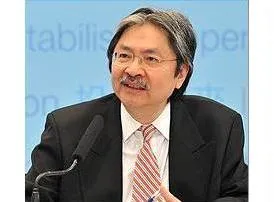
Challenges abound, but do the measures add up?: PwC
We believe that a comprehensive and orchestrated policy must be developed by the Government.
According to PricewaterhouseCoopers, only when that is established will it be appropriate to consider the role of fiscal initiatives.
Overall, the Financial Secretary is optimistic about the Hong Kong economy, and so are we. He predicts that GDP will grow by four to five per cent in 2011/12 following 6.8 per cent growth in real terms for 2010/11. The revised 2010/11 consolidated account will have an estimated surplus of $71.3 billion instead of the deficit of $25.2 billion originally estimated in February 2010. This turnaround is mainly attributable to higher-than-expected revenue from land sales and from stamp duty collection, and lower-than-expected expenditures. Operating revenue in the revised estimates is $301.5 billion, which is $64.9 billion more than the original estimate, while operating expenditures are down by $13.7 billion – the latter element reflects the Government’s discipline in spending. On the revenue side, land sales provided $62.0 billion, which is $27.9 billion more than originally anticipated. Actual results of the 2010/11 fiscal year will be announced around August this year. Historically, the final outcome is always better than the revised estimate and this will likely be the case for 2010/11.
The outlook in the years beyond 2010/11 is also positive. The consolidated annual surplus for 2011/12 is estimated to be $3.9 billion and is expected to reach $42.3 billion in 2015/16. It’s not surprising that these continuing annual surpluses will result in a very strong financial position for the Government. In particular, the Government’s reserves are tipped to reach $595.4 billion and $697.7 billion by the end of the fiscal years 2011/12 and 2015/16 respectively. So we’re sitting on a staggering amount of money for “a rainy day”.
This strong financial position is not new or unexpected. But there are increasing demands from various sectors on the Government to use its financial might in addressing a variety of pressing issues, including asset-price bubbles and inflation, public services, social welfare, and enhancing Hong Kong’s business environment.
The escalation of property prices is clearly of significant concern to Hong Kong, and the Financial Secretary acknowledged this in his address. The Government announced three rounds of measures over the past few months, including the proposed special stamp duty, designed to curb speculation in the property market. On top of these measures, the Financial Secretary announced in the Budget that the Government will increase land supply and public housing, and introduce a “My Home Purchase Plan” scheme. It is expected the supply of new residential housing will be around 30,000 to 40,000 units in 2011/12 through the increased land supply. Other measures have also been proposed, including revitalising existing industrial buildings to increase the supply of office space. It remains to be seen whether these measures will achieve their outcomes, particularly in cooling the overheated residential property market.
To alleviate the impact of Hong Kong’s high rate of inflation on people’s livelihoods, several one-off measures have been proposed. These include: a waiver of rates (capped at $1,500 per quarter); a subsidy of $1,800 per residential electricity account; payment of two months’ rent for public housing; and one extra month of Comprehensive Social Security Assistance and Old Age Allowance and Disability Allowance. Unlike previous years, no tax refunds have been proposed, although a $6,000 injection will be made into every existing MPF account. The Financial Secretary is including this as a delayed measure – which avoids exacerbating inflation while at the same time boosting people’s retirement income. Nonetheless, taxpayers will be better off as a result of the proposed increase in child allowances and dependent parent/grandparent allowances. There is, however, no cut in tax rates, notwithstanding Chief Executive Donald Tsang’s pledge to reduce the profits tax rate from 16.5% to 15%.
Although inflation is recognised as a major challenge (Hong Kong being an economy very much exposed to external factors), there are limits to the actions the Government can take to address this issue. To alleviate the impact of inflation on the general public, however, in addition to the handouts mentioned above, a $5 billion to $10 billion issue of inflation-linked retail bonds (referred to as iBonds) will be offered by the Government to Hong Kong residents. In principle, this sounds good. But the size of the proposed iBonds scheme is not going to be large enough for the population to obtain a significant hedge against inflation.
Developing the strength of the economy is important for the future prosperity of Hong Kong. The Financial Secretary acknowledged in his Budget speech that there are many obstacles in meeting this vision. Indeed, one third of his speech highlighted the challenges facing the Hong Kong economy. As noted at the outset, however, few specific fiscal measures have been proposed as a response to these issues. That said, until a comprehensive response to the issues is formulated, a consideration of fiscal
measures is probably premature. But we believe that there are a number of specific areas where fiscal
incentives should be more urgently employed. One example concerns regional headquarter operations
for overseas companies. Hong Kong’s attractiveness and competitive edge in this important area is
being eroded by concessions and policies from some of Hong Kong’s regional competitors. A series of non-fiscal policies, however, have been proposed to further regional cooperation with the Mainland and Taiwan, and to enhance the competitiveness of Hong Kong’s “pillar” industries.
Talented and skilled people are vital for economic development. The Financial Secretary proposes to increase expenditures on education, health and social welfare to $136 billion, which accounts for 56% of the overall Government outlay. Scholarship funding and financial assistance to post-secondary students will be increased, while additional funding will be injected into public health care services. This is a welcome measure. The urgent need to invest in these areas in Hong Kong has been highlighted in recent surveys by independent and influential think tanks.
Overall, the measures in this year’s Budget are largely as expected, with some minor surprises. Handouts, though limited, have been proposed, as have immediate measures to cool the property market. However, limited fiscal stimulus for the future development of Hong Kong’s economy was offered in John Tsang’s extended Budget speech. Maybe this is because Hong Kong’s economy is in pretty good shape. Or maybe because the Government feels that fiscal policy is not the right tool to address our major challenges. Unfortunately, much of what was raised or proposed by the Financial Secretary is lacking in detail, although these will emerge in due course, perhaps, in the next policy address of the Chief Executive. We’ll wait and see what happens. But what happens to Hong Kong if the measures don’t add up?
Commentary by PricewaterhouseCoopers



















 Advertise
Advertise







